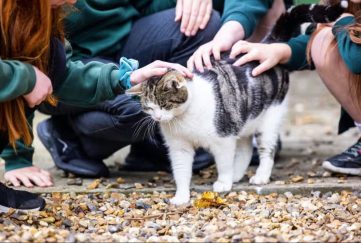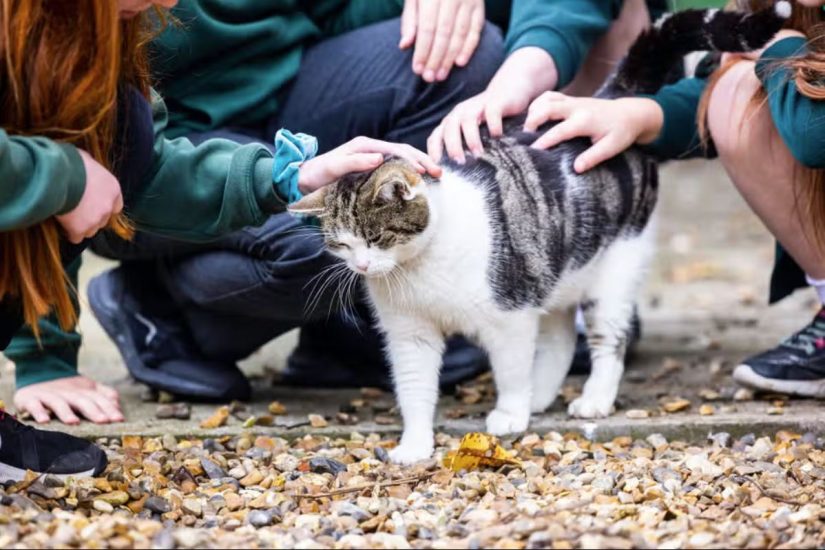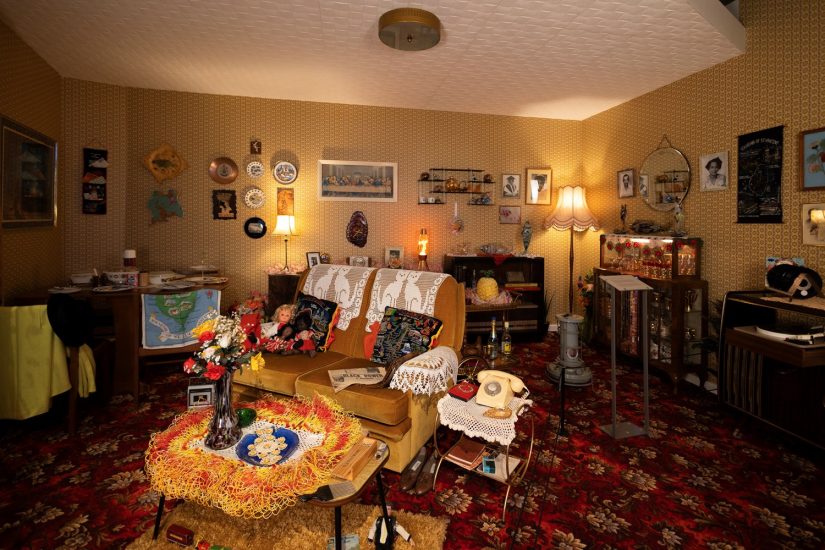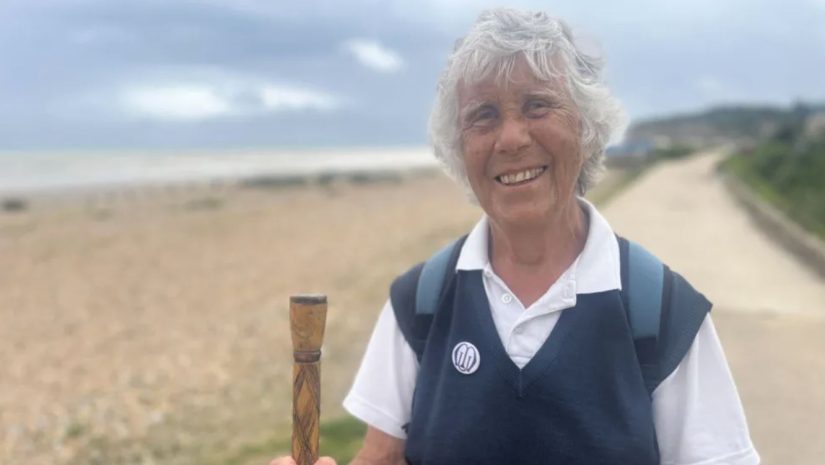SPONSORED: Meet the Chief Executive of Cats Protection
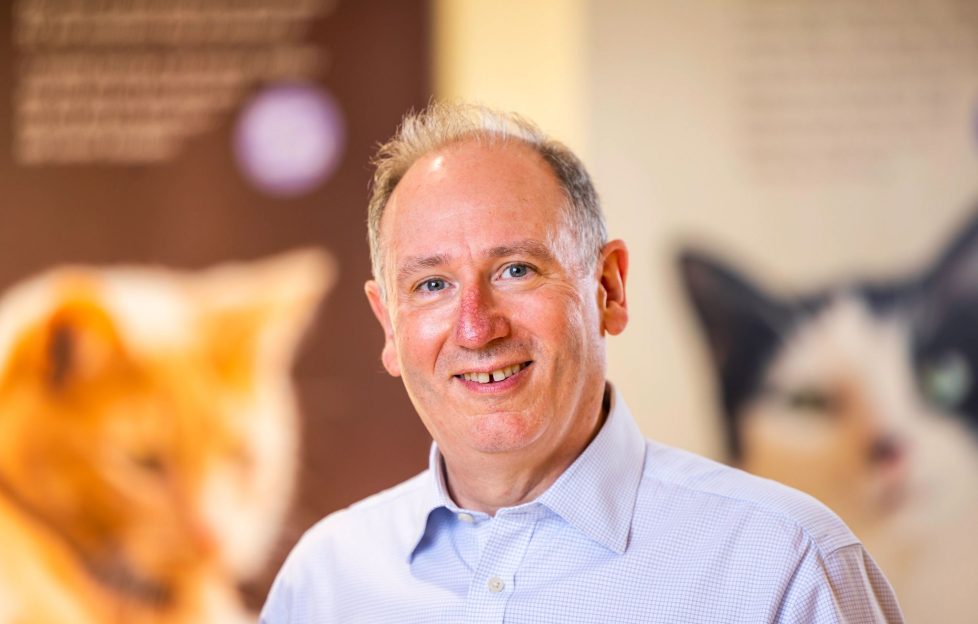
John May, lifelong cat owner and Chief Executive of Cats Protection, tells us how the charity opened his eyes to what makes truly happy cats.
The UK’s owned cat population is growing, but are we providing them with everything they need to thrive? This important question sits right at the heart of Cats Protection.
When I sit down with Chief Executive John May to talk all things cats, it’s one of the first things that comes up. After all, despite being a lifelong lover and owner of cats, when he joined Cats Protection just over a year ago, he discovered several eye-opening things about our feline companions.
“I’m nutty about cats. My cat’s called Blenheim, he’s a rescue cat,” explains John. “It’s tricky because of course cats are part of your family. But I also need to recognise that he is not a little furry person. He’s a different species.
“That’s the really important part of what we do as an organisation, helping people to make sure that cats have their very best lives. We want everyone to see the world through cats’ eyes.
“There are 11 million owned cats in this country, and I would have to say that only a tiny minority of those are completely understood by their owners.”
Taking a cat’s view of the world
“I’ve owned a cat for the whole of my adult life and until recently I would have thought of myself as somebody who understood cats,” says John. “But I came to work for Cats Protection and I suddenly discovered that there was just loads that I didn’t know.
“One of the most interesting things which I discovered is that Blenheim is much, much happier now that I’ve separated his water from his food.
“Cats have obviously evolved, but they’re not that far evolved from the wild animals that they were millennia ago, and in the wild, a cat will never keep their food next to water because they don’t want the two to be contaminated.
“Lots of people say ‘oh, my cat’s not drinking enough’. The answer could be a simple one, your cat isn’t drinking enough because you’ve put the water exactly where the cat doesn’t want it. When I separated Blenheim’s water and food, I keep them about two metres away from each other now, suddenly he was absolutely delighted.
“That’s the sort of thing that I think we can help the general public to understand and therefore make some much happier cats.”
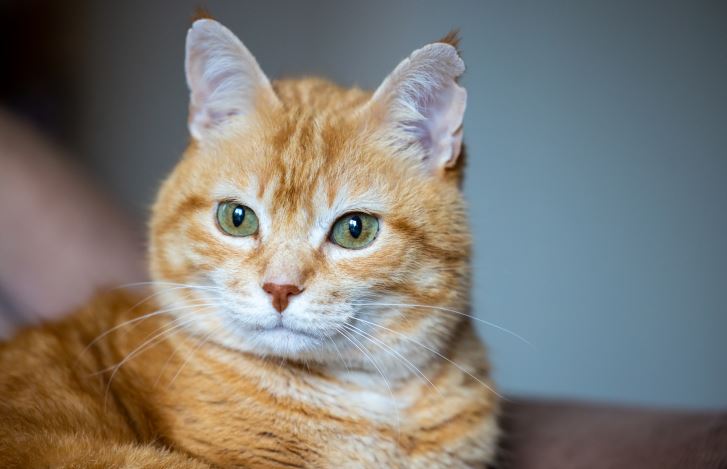
To understand our cats we need to look at the world through their eyes.
Not all cats want the same thing
All cats are different, of course, to the extent that while some need a cosy bed in front of the fire and on-demand ear scratches, other cats might be more happy living outside.
Take community cats, for example. These are the cats who have recognised that humans are a source of food and even shelter, but they don’t necessarily want to live with those humans.
“It’s a really tough one. Rescuing that cat could actually be the worst thing to do for them,” says John.
“Putting them into a pen and waiting for them to be adopted disturbs all their normal behaviours and might make them very stressed and unhappy, when actually they are a perfectly happy cat living their best life in the world.
“The one thing we can do is make sure that cat is neutered so that we control the cat population, because what we don’t want is litters of unwanted kittens that sadly won’t survive because they just won’t be in a position to be able to thrive.”
That’s why Cats Protection helps subsidise the cost of neutering for owners that can’t afford it in some parts of the country and runs neutering programmes for cats without a home. Last year, Cats Protection was responsible for 132,000 cats being neutered.
Advocating for cats for 100 years
It’s not the only service Cats Protection provides, though. Of course, the charity is probably best known for its 34 rehoming centres for cats, most recently, it opened a state-of-the-art adoption centre in Glasgow.
But alongside neutering programmes and rehoming, Cats Protection also helps microchip cats (43,000 were microchipped last year) and champions for a change in law around microchipping for cats. Indeed, following an announcement from the government earlier last year, pet cats in England must be microchipped by 10 June 2024.
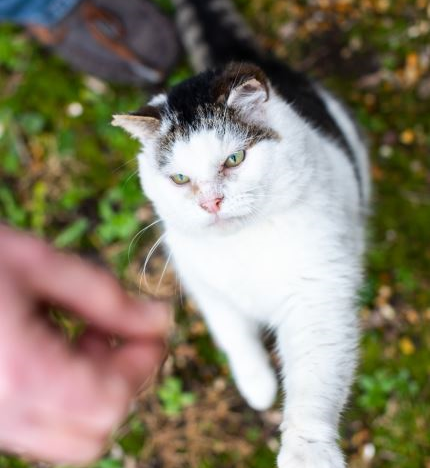
Not all cats want the same things or the same kind of care.
There are also services like Cat Guardians, that provides assurances your cat will be looked after and rehomed when you pass away, and Lifeline, which provides short-term fostering for cats from families that are experiencing domestic abuse.
Cats Protection also works with other animal welfare organisations to improve standards of living and care for cats and runs regular public campaigns.
John adds: “If we’re going to change the lives of 11 million owned cats, then we have to do that through influence, education and advocacy. We have a great team that works to make sure that happens.
“The partnership that we have between our employees, who are often experts in particular areas of cat welfare, alongside the wisdom and experience of around 9,000 volunteers, I think it’s a piece of alchemy that makes our organisation really special.”
A gift in your Will supports the charity’s future
While leading this team of employees and volunteers is a privilege for John, just as touching is the ongoing support that Cats Protection receives from the public via donations, fundraising and gifts in Wills.
John ends: “We’re extraordinarily fortunate as a charity because the bedrock of our giving is people who choose to leave us money in their Wills.
“What that does is it provides us with absolute assurance that we’re going to be able to do the best for cats as we go forward. It’s a funny thing, isn’t it, leaving money to somebody in a Will? It’s something that’s going to happen, one always hopes, a long way away and a long time after you make that commitment.
“But it is the most wonderful gift to be able to provide to a charity. At Cats Protection, we are just so immensely grateful to those people who share our love for cats and see that their love can live on through the work that they helped to fund.”
To help keep the UK’s feline friends purring now and in the future, find out more about leaving a gift in your Will to Cats Protection.



